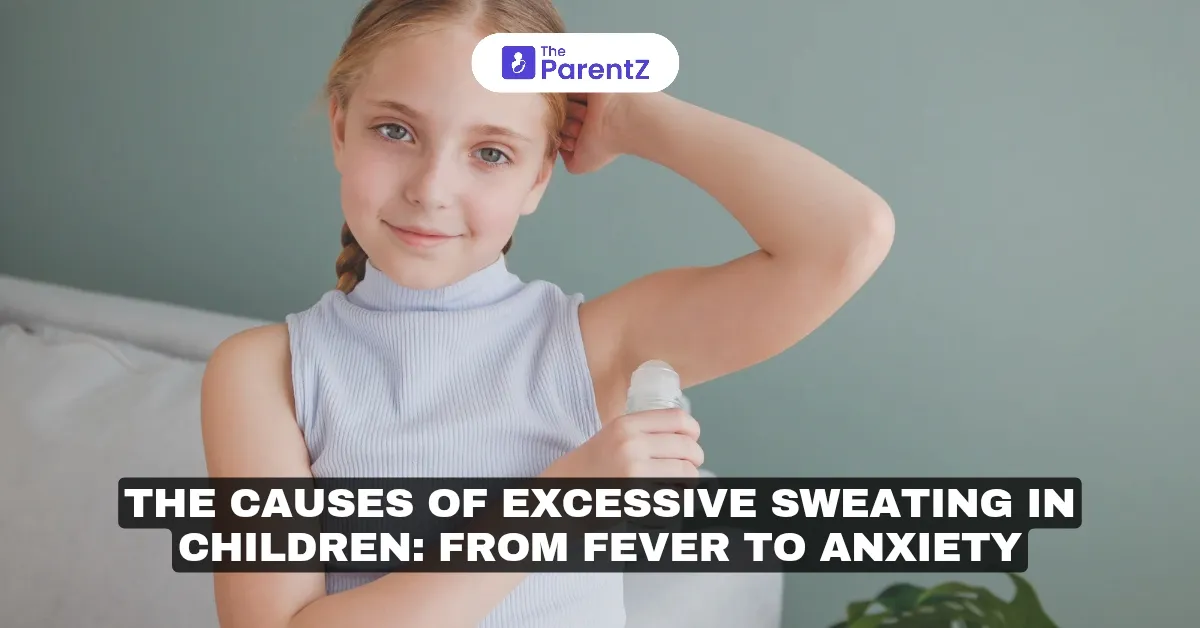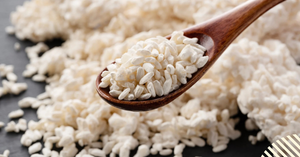Why Do Some Children Sweat Excessively?
Sweating is a natural process that helps regulate body temperature. However, if your child sweats excessively, even in cool conditions or without physical exertion, it could indicate an underlying issue. From common infections to emotional stress, several factors can contribute to abnormal sweating in children.
Common Causes of Excessive Sweating in Children
1. Fever and Infections
• When a child has a fever, the body naturally sweats to cool down once the temperature starts dropping.
• Bacterial and viral infections (such as the flu, pneumonia, or tuberculosis) can cause night sweats.
• Chronic infections, like tuberculosis, may lead to persistent sweating along with weight loss and fatigue.
2. Anxiety and Emotional Stress
• Children experiencing stress, fear, or social anxiety may sweat excessively, especially on their palms, soles, and face.
• Anxiety-induced sweating is usually triggered by school pressure, social situations, or unfamiliar environments.
3. Hyperhidrosis (Excessive Sweating Disorder)
• Primary Hyperhidrosis: A condition where the sweat glands are overactive, leading to excessive sweating in specific areas like hands, feet, and underarms. It often starts in childhood or adolescence and has a genetic component.
• Secondary Hyperhidrosis: Caused by underlying health conditions such as hormonal imbalances, infections, or metabolic disorders.
4. Thyroid Disorders
• An overactive thyroid (hyperthyroidism) increases metabolism, leading to excessive sweating, weight loss, and rapid heartbeat.
5. Low Blood Sugar (Hypoglycemia)
• A sudden drop in blood sugar levels can trigger sweating, shakiness, dizziness, and irritability.
• Common in children with diabetes or those skipping meals.
6. Medications and Side Effects
• Certain medications, including those for asthma, antidepressants, or fever reducers, can cause excessive sweating as a side effect.
7. Obesity and Overheating
• Overweight children are more prone to sweating due to increased body heat production and reduced ability to regulate temperature.
• Poor ventilation, excessive layering of clothes, or sleeping in a hot room can also contribute to night sweats.
8. Neurological Disorders
• Rare conditions like autonomic dysregulation can interfere with normal sweating patterns, causing excessive or uneven sweating.
When Should You Be Concerned?
While occasional sweating is normal, parents should seek medical advice if their child:
• Sweats excessively without an obvious reason.
• Experiences night sweats frequently.
• Has additional symptoms like weight loss, fatigue, or rapid heartbeat.
• Feels cold but continues to sweat profusely.
• Develops skin irritation, infections, or body odor due to excessive sweating.
If you suspect an underlying condition, consult:
• Pediatrician: For initial evaluation and guidance.
• Endocrinologist: If hormonal imbalances like hyperthyroidism are suspected.
• Neurologist: If neurological causes are a concern.
• Dermatologist: For hyperhidrosis treatment.
Managing Excessive Sweating in Children
• Dress your child in breathable, moisture-wicking fabrics.
• Encourage proper hydration to prevent dehydration from sweating.
• Maintain a cool room temperature during sleep.
Excessive sweating in children can have multiple causes, ranging from common infections to underlying medical conditions. Identifying the root cause early can help ensure appropriate treatment and improve your child’s comfort and confidence. If you’re concerned, consulting a doctor is the best step forward.








Be the first one to comment on this story.